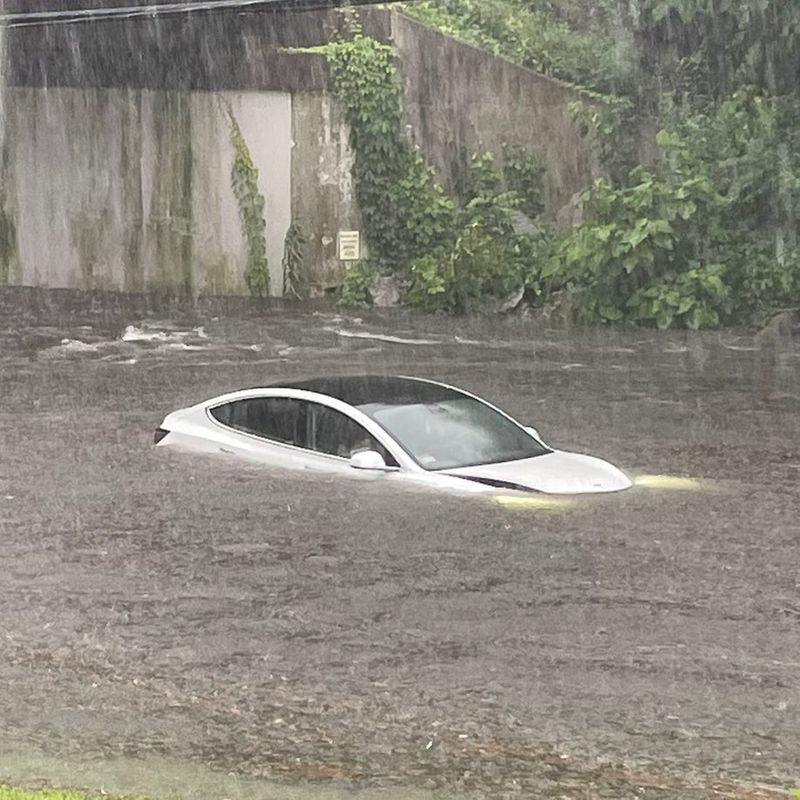- Admin
- Oct 01, 2024
- Buying Guides
- Read: Small Medium Large
Are EVs Really At A Higher Risk Of Fire In Floods?
The disastrous flood that hit North Carolina in recent days has sparked the debate of whether electric cars are more at risk of bursting into flames when confronted with a large body of water. This is a valid concern, considering how we've already seen a couple of electric cars burn to the ground due to battery-related issues. The Chevrolet Bolt is the most noteworthy example of how poor manufacturing standards can result in disastrous outcomes that can put you at serious risk. This is one of the many reasons why potential buyers defer their decision to make the switch to a fully electric vehicle ownership experience.
We also have to point out that there have been a number of instances of ICE cars burning down in the middle of the street, usually because of electrical failures. Thankfully, when you look at the ratio of cars that burn down next to those that remain fire-free, these are extremely rare occurrences. Regardless, there are still some things you need to know about the condition of your EV in the event that it gets stuck in a body of water during severe rainfall and flooding, just as you would if you owned an ICE.

EVs are typically safe when entering a large body of water, but they are more prone to burning down in a flood because of the high salt content of the ocean. When saltwater enters an EV's system, it can penetrate the battery pack and cause short circuits or thermal runaway. EV battery packs are designed to be water-resistant, but prolonged submersion in salt water will likely lead to corrosion and degradation of the protective seals. Salt water is highly conductive, which increases the risk of electrical shorts within the battery, so if it comes into contact with the internal components of a lithium-ion battery, the combination of water and salt can lead to electrolysis. When this occurs, the battery's materials break down and release hydrogen gas, which we know to be a highly flammable element.
Lithium battery packs are highly reactive to saltwater, resulting in a much more intense reaction. When saltwater comes in contact with the lithium-ion cells, it will result in overheating and short-circuiting, which will most likely lead to a combustion event. Because of this, it's essential that you carefully monitor and protect your EV in the event of a flood. If you're unable to do so, you'll have to decommission and replace the lithium-ion battery pack to prevent potential damage. The risk doesn't always manifest immediately, meaning fires can start hours or even days after exposure as corrosion progresses and triggers thermal runaway.





